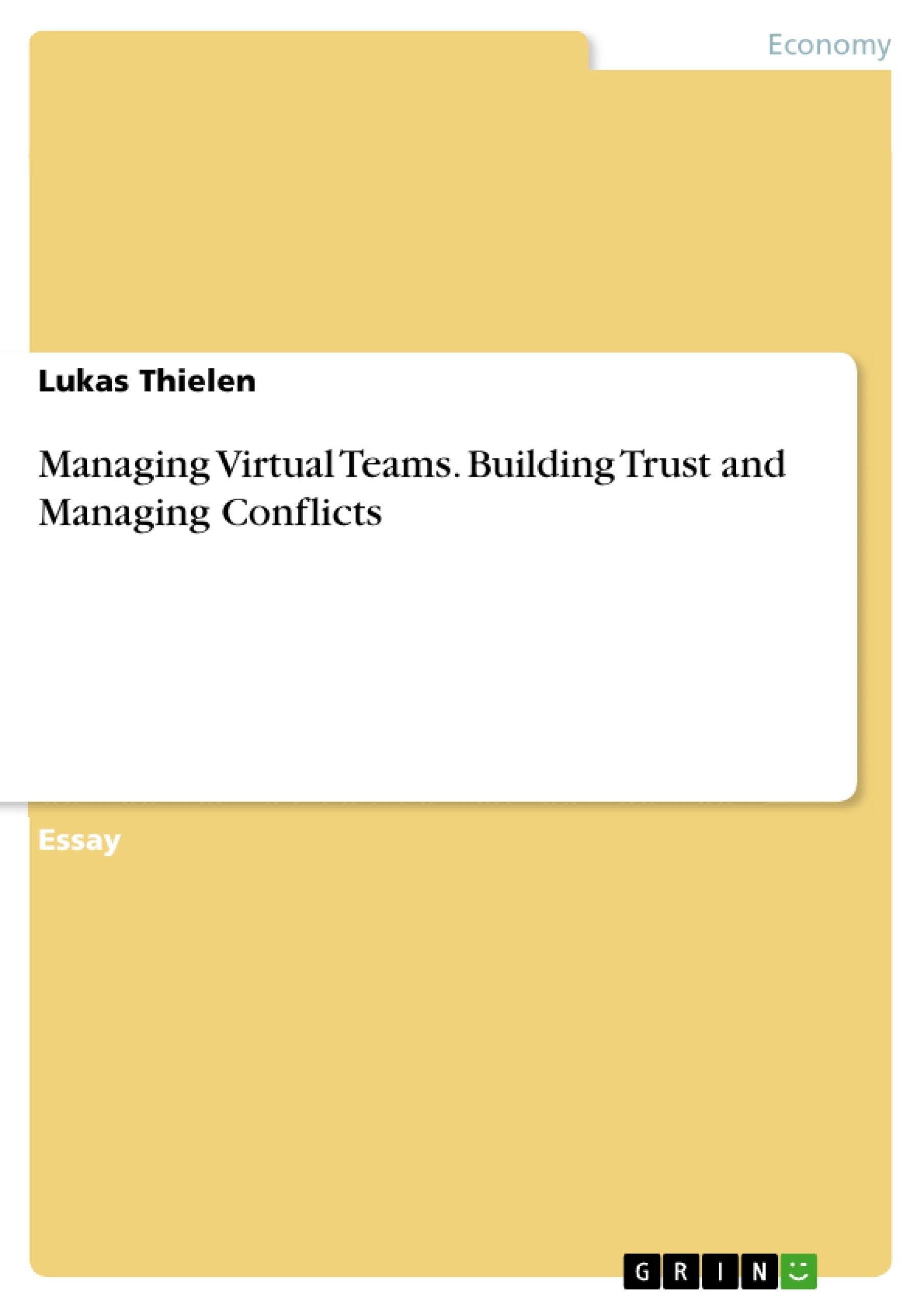At the turn of the century, globalisation and the use of communication technologies enabled organizations to alter their organization based structures from traditional to virtual settings. The use of agile teams, that can be arranged on the fly, has expanded considerably in response to the competitive, complex and challenging business environment. Traditionally, teams operated in face- to-face settings, but with advances in information and communication systems, virtual collaboration has become commonplace. Virtual teams have plenty of advantages. Companies can bring together their best global talents at low cost while offering their employees great flexibility and autonomy. Since team members span multiple time zones and are able to work parallel instead of sequential, organizations are able to significantly reduce their response time and time to market. It is fair to say that the digital evolution is transforming the future of work.
But the benefits of virtual collaboration come with challenges that need to be mastered by organizations. Project coordination, building relationships, establishing trust and achieving effective teamwork are only few aspects that differ from conventional teams when considered in detail. Teams with multi-cultural backgrounds that are geographically dispersed and virtually composed have been in practice and studied for more than three decades. Yet managers still struggle with how to get them perform and collaborate properly. Bad communication, non existing trust and conflicts seem to be the main causes of failure in virtual collaboration.
The purpose of this research essay is to understand the characteristics of managing virtual teams by analysing relevant literature, focused on the areas of building trust and managing conflicts in particular. The essay aims to examine the impact and relation that trust and conflict management have with the performance of a team and the group’s cohesion.
Inhaltsverzeichnis (Table of Contents)
- 1. Introduction
- 2. Managing a virtual Team
- 2.1 Building Trust
- 2.2 Conflict Management
- 3. Conclusion
Zielsetzung und Themenschwerpunkte (Objectives and Key Themes)
This research essay explores the characteristics of managing virtual teams by analyzing relevant literature, particularly focusing on the areas of building trust and managing conflicts. The aim is to examine the impact and relationship that trust and conflict management have on team performance and group cohesion.
- The benefits and challenges of virtual teams in a globalized business environment
- The importance of trust building and conflict management for effective virtual team performance
- The impact of communication technology on trust formation and conflict resolution in virtual teams
- The role of cultural differences and language barriers in virtual team dynamics
- The need for managers to develop specific skills and competencies for leading virtual teams
Zusammenfassung der Kapitel (Chapter Summaries)
- Introduction: This chapter introduces the concept of virtual teams, highlighting their growing importance in the modern business landscape. It explores the benefits and challenges associated with virtual collaboration, particularly focusing on the critical aspects of trust building and conflict management.
- Managing a virtual Team: This chapter delves into the specific requirements for managing virtual teams, emphasizing the need for specialized leadership skills and expertise in communication, trust building, and conflict resolution.
- Building Trust: This chapter focuses on the crucial role of trust in virtual team dynamics. It examines the challenges associated with building trust in virtual environments, including the absence of face-to-face interaction, communication barriers, and the impact of cultural differences.
Schlüsselwörter (Keywords)
Virtual teams, trust building, conflict management, communication technology, cultural intelligence, leadership skills, globalization, digital transformation, team performance, group cohesion, organizational effectiveness.
Frequently Asked Questions about Managing Virtual Teams
What are the main challenges in managing virtual teams?
Key challenges include building trust without face-to-face interaction, managing conflicts across cultures, and coordinating projects across time zones.
How can trust be built in a virtual environment?
Trust is built through consistent communication, reliability, and the use of technology to foster relationship-building among geographically dispersed members.
What role does communication technology play in virtual teams?
Technology is the backbone of virtual collaboration, enabling parallel work and reducing response times, but it can also lead to misunderstandings if not managed properly.
How do cultural differences impact virtual team dynamics?
Multi-cultural backgrounds can lead to diverse perspectives but also cause friction due to different communication styles and language barriers.
Why do virtual teams often fail?
The main causes of failure are typically poor communication, non-existent trust, and unresolved conflicts that hinder team cohesion and performance.
- Quote paper
- Lukas Thielen (Author), 2017, Managing Virtual Teams. Building Trust and Managing Conflicts, Munich, GRIN Verlag, https://www.grin.com/document/455210



